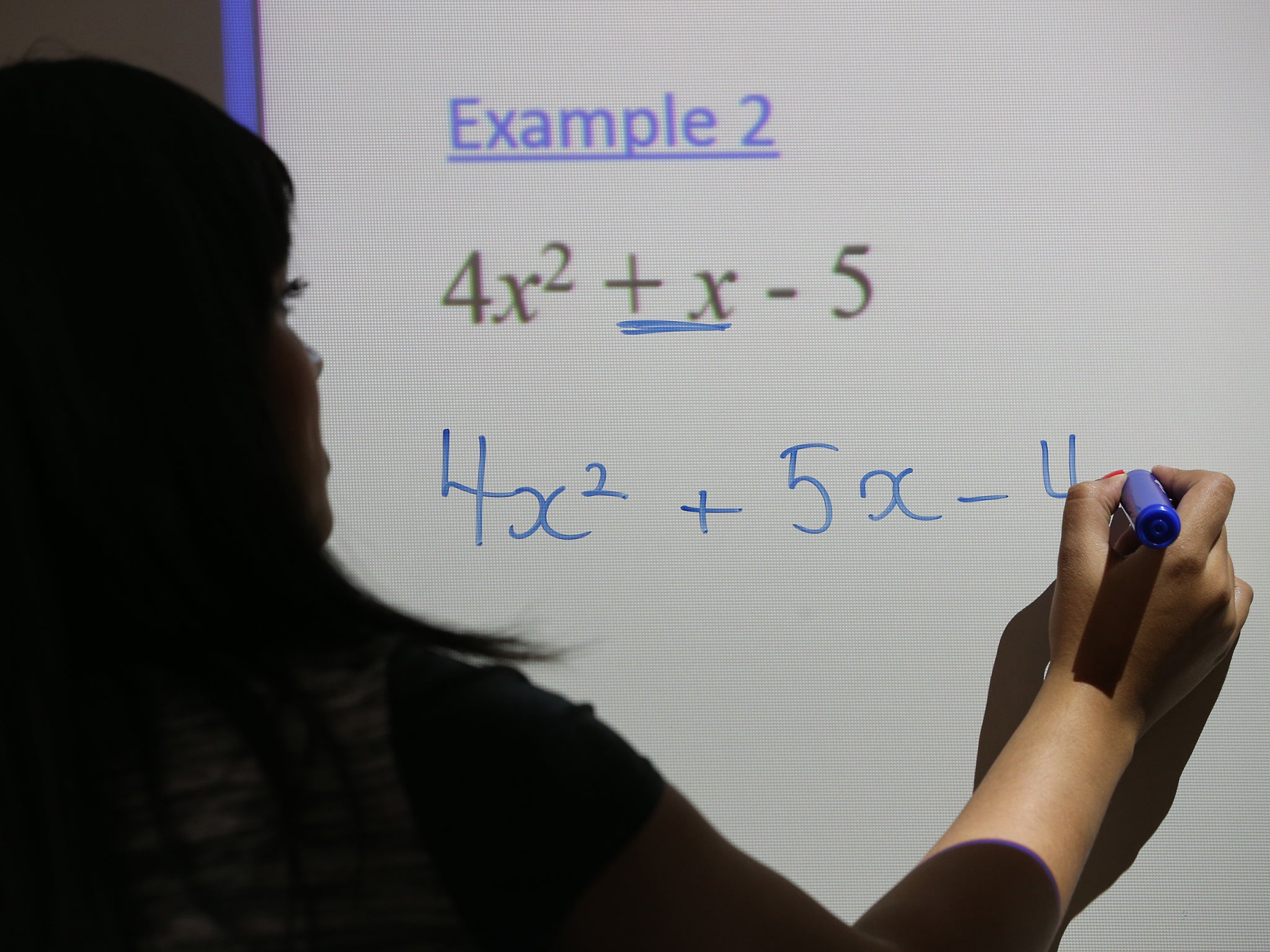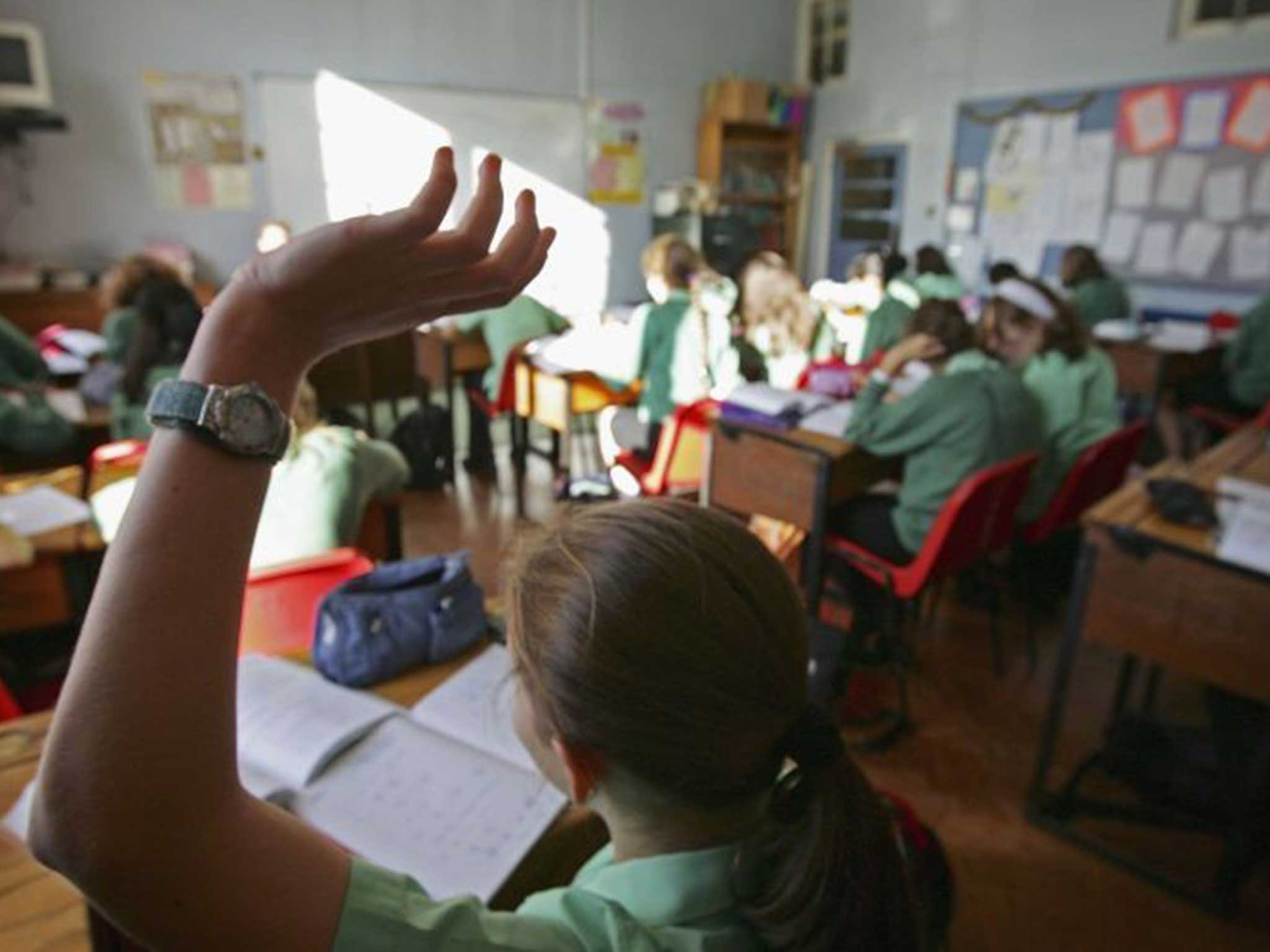Over one in five secondary school maths lessons taught by teacher without degree in the subject
Concern rises as a fifth of classes are taught by teachers without a university degree in the subject

More than one in five secondary school maths lessons is now taught by a teacher without a degree in the subject, official figures have revealed.
Teacher-recruitment problems in maths, as well as in English and science, have led to increasing numbers of classes being taught by staff without relevant university qualifications, according to statistics released by the Department for Education.
The figures show that 20.2 per cent of maths lessons were taught by a teacher without a relevant degree, up from 17.3 per cent in 2013. In English, around one in six lessons (17 per cent) were taught by a non-specialist, up from 15.2 per cent the previous year. In science, nearly one in seven lessons (13.6 per cent) were taught by someone without a relevant degree against 14.8 per cent in 2013.
Brian Lightman, general secretary of the Association of School and College Leaders, said that headteachers were forced to get non-specialists to deliver key subjects because it was increasingly difficult for them to recruit teachers with relevant degrees, particularly in maths and science.

“These figures confirm our fears,” he said. “We are very concerned about the situation. It is very serious and it is acting as a barrier to the Government achieving its ambitions. Much more needs to be done to attract people into the teaching profession, particularly in these shortage subjects.”
The figures also showed that nearly one in 20 teachers (4.5 per cent) does not have a teaching qualification, up from 3.7 per cent the previous year.
Teachers without qualified teacher status (QTS) were most likely to be employed in free schools – where one in six (15.4 per cent) teachers did not have QTS – and academies (5.8 per cent) than in local authority schools (3.7 per cent).
Chris Keates, general secretary of the NASUWT teaching union, blamed the former coalition government for removing the requirement for schools to employ only qualified teachers.
She said: “This confirms the annual survey the NASUWT has been conducting on unqualified staff in schools which has shown a year-on-year increase since the coalition government removed the requirement for schools to employ qualified teachers.
“The coalition government has taken away a fundamental entitlement for children and young people to be taught by those with qualified teacher status and this can only be detrimental to standards of education in the long term.”
Tristram Hunt, Labour’s Education spokesman, warned that the Government was “failing in its most basic duty in education: to provide enough high-quality, qualified teachers”. He added: “Things are going to get worse, as teacher recruitment figures for next year show, for a fourth consecutive year, that ministers are set to miss recruitment targets, including in crucial areas like maths and physics.
“This is a very worrying trend that means more children are likely to be taught science by those trained to be PE teachers ... Parents expect better and pupils deserve better.” He added that “ministers are displaying a staggering degree of complacency”.
Schools Minister Nick Gibb defended the Government’s record, saying that the number and quality of teachers was at an all-time high with over 5,000 more staff working in England’s classrooms compared with the previous year.
But he added: “We recognise, however, that recruitment is a challenge as the economy improves and competition for new graduates intensifies, which is why we are focused on attracting more top graduates into the profession, particularly in the core academic subjects that help children reach their potential.”
Join our commenting forum
Join thought-provoking conversations, follow other Independent readers and see their replies
Comments
Bookmark popover
Removed from bookmarks